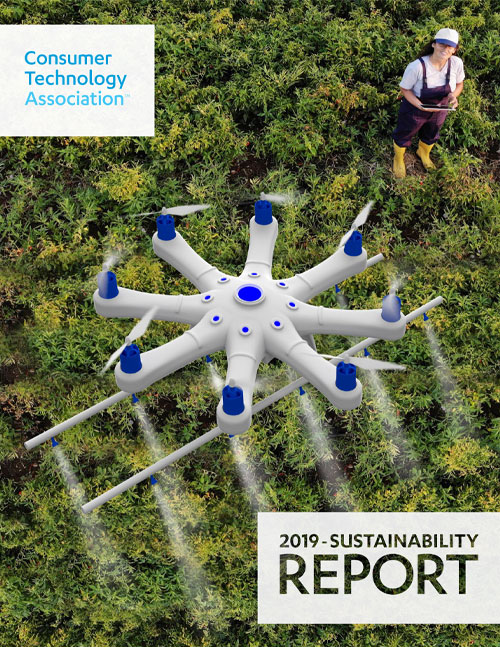AI and
Its Growing Benefits

Some call the growing importance of artificial intelligence (AI) the next industrial revolution. And for environmental issues, the critical role AI could play is starting to play out as technology pilots begin to ripple out into real world applications and experiments. In fact, according to a survey by Intel and the research firm Concentrix in 2018, 74% of business decision-makers working in environmental sustainability agreed that AI will help solve long-standing environmental challenges, and over 64% agreed that the Internet of Things (IoT) will help solve these challenges. Already, agricultural practices, sea water erosion, marine life protection and air pollution are benefiting from AI around the world.
Amazon, Google, Apple & Microsoft
For instance, one-third of U.S. homes today own a smart speaker – a four-fold increase from only three years ago. These devices, which leverage voice assistant platforms – Alexa from Amazon, Google Assistant, Apple’s Siri and Cortana from Microsoft – bring the capabilities of AI to life for tens of millions of Americans daily. Whether planning a trip, checking the weather or managing energy and security in the home – the capabilities and applications of these systems are nearly endless. Whether adjusting the thermostat, controlling the lights while away or monitoring household water usage, the capabilities of these systems are nearly endless. And AI-enabled voice assistant technology is especially useful for the disabled and the elderly, making energy management easier and safer – and life more enjoyable.


Microsoft
Additionally, the AI for Earth initiative puts Microsoft’s cloud and AI tools in the hands of environmentalists working to conserve natural resources and sustainably feed the planet. Through the initiative, the technology giant is developing open-source tools, models, infrastructure, data and APIs to accelerate technology development for environmental sustainability across the categories of climate, agriculture, water and biodiversity.
Nvidia
Blue River Technology, a startup recently acquired by John Deere, utilizes NVIDIA graphic processing units (GPUs) and computer vision to tackle one of agriculture’s toughest challenges – reducing herbicide use and its environmental and economic costs. Blue River Technology’s main product, See & Spray, is a smart sprayer system that leverages AI and machine learning to distinguish weeds from beneficial plants in a field. Pulled behind tractors, the sprayer employs 30 mounted cameras to capture photos of plants every 50 milliseconds and process them through its on-board NVIDIA supercomputing modules. The potential: to reduce herbicide use by up to 90%, based on field tests.


Plus.ai
On the mobility front, Silicon Valley startup Plus.ai is focused on leveraging AI and self-driving technology to transform the trillion-dollar commercial trucking industry. In 2019 alone, there were about 276 million vehicles operating on roads throughout the U.S. The first advanced autonomous trucking company to obtain California’s Autonomous Testing License, Plus.ai collaborates with the largest OEMs to build self-driving trucks that are safer than human-operated vehicles and promote greater ride pooling. The company operates a fleet of autonomous trucks in pilot programs with the top freight shipping companies, with testing underway at dozens of locations as of mid-2019. The potential of ride pooling with Plus.ai could be significant for the environment: even modest levels of ride pooling could result in significant energy savings, in addition to reducing congestion due to increasing vehicle occupancy, especially during peak times.

